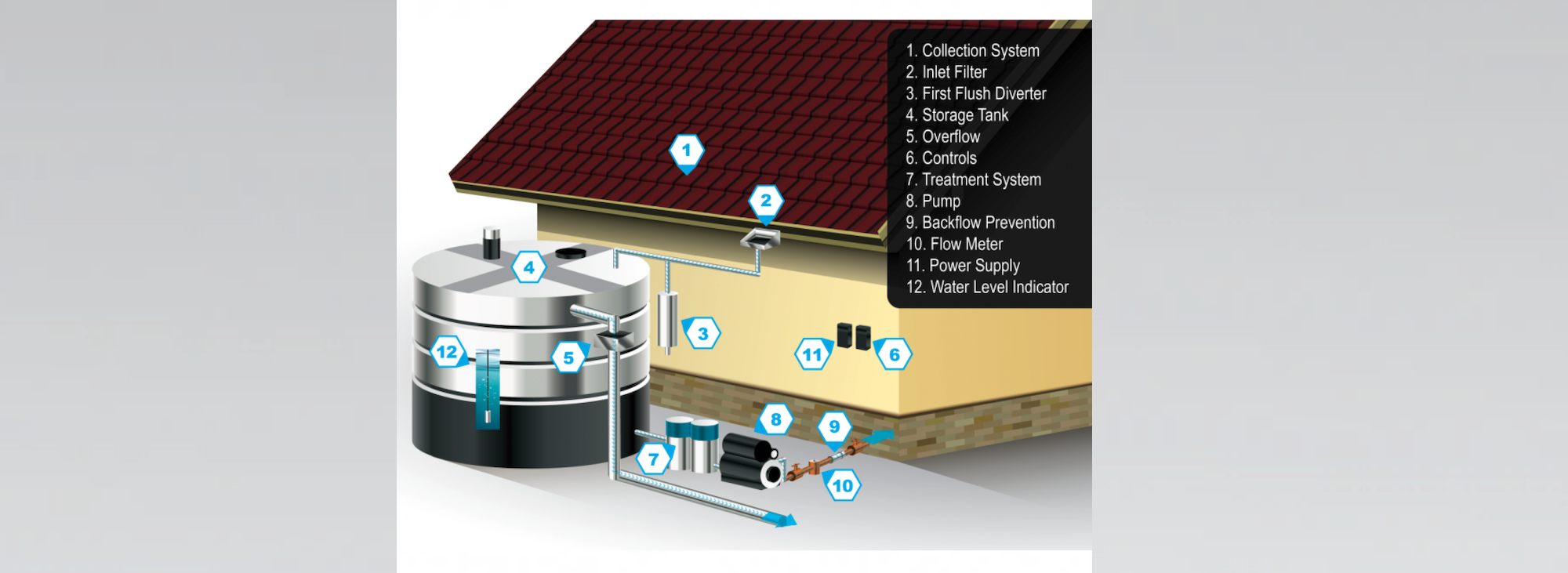ASSE/ARCSA/IAPMO/ANSI Series 21000-2022, Professional Qualifications Standard for Rainwater Catchment Systems Personnel, has been designated as an American National Standard by the American National Standards Institute (ANSI).
Now available for purchase, the standard was first published in 2017 by ASSE International and the American Rainwater Catchment Systems Association (ARCSA) to address an increasing number of residential, commercial, and industrial rainwater and stormwater systems being installed. The standards within Series 21000 establish best practices and uniform minimum requirements for qualified designers, installers, and inspectors of viable alternative water systems utilizing captured rainwater or stormwater.
Program guidelines and a series of exams have been created for the certification of rainwater catchment system installers, designers and inspectors. The standard complements ARCSA/ASPE/ANSI 63, Rainwater Catchment Systems, and ARCSA/ASPE/ANSI 78, Stormwater Harvesting System Design for Direct End-Use Applications.
“Today, 42.4% of the U.S. and 50.7% of the lower 48 states are in drought. Properly designed, installed, and inspected rainwater catchment systems can help replace the use of potable water for irrigation and allow for watering landscaped and gardened areas during times of drought,” said Kurt Steenhoek, United Association (UA) international representative and ASSE Series 21000 Working Group chairperson. “These systems can help bring water to areas that have development restrictions, depleted ground or surface water sources, or infrastructure that is unable to deliver suitable water quantities or qualities.”
Related Stories
| Sep 13, 2022
California building codes now allow high-rise mass-timber buildings
California recently enacted new building codes that allow for high-rise mass-timber buildings to be constructed in the state.
| Sep 8, 2022
U.S. construction costs expected to rise 14% year over year by close of 2022
Coldwell Banker Richard Ellis (CBRE) is forecasting a 14.1% year-on-year increase in U.S. construction costs by the close of 2022.
| Sep 2, 2022
Converting office buildings to apartments is cheaper, greener than building new
Converting office buildings to apartments is cheaper and greener than tearing down old office properties and building new residential buildings.
| Aug 29, 2022
Montana becomes first U.S. state to approve 3D printing in construction
Montana is the first U.S. state to give broad regulatory approval for 3D printing in building construction.
| Aug 26, 2022
Idaho Building Code Board considers gutting large part of state energy code
Idaho Building Code Board considers gutting large part of state energy code.
| Aug 25, 2022
New York City’s congestion pricing aims to reduce traffic, cut carbon
Officials recently released an environmental assessment that analyzes seven different possible pricing schemes for New York City’s congestion pricing program.
| Aug 23, 2022
New Mass. climate and energy law allows local bans on fossil fuel-powered appliances
A sweeping Massachusetts climate and energy bill recently signed into law by Republican governor Charlie Baker allows local bans on fossil fuel-powered appliances.
| Aug 22, 2022
Gainesville, Fla., lawmakers moved to end single-family zoning
The Gainesville City Commission recently voted to advance zoning changes that would allow duplexes, triplexes, and quadplexes to be built on land currently zoned for single-family homes.
| Aug 19, 2022
Future sea rise could expose 720,000 more people on East Coast to flooding
An analysis by NPR based on modeling from the National Hurricane Center for New York City, Washington, D.C., and Miami-Dade County found future sea rise could expose about 720,000 more people to damaging floods later this century.
| Aug 16, 2022
DOE funds 18 projects developing tech to enable buildings to store carbon
The Department of Energy announced $39 million in awards for 18 projects that are developing technologies to transform buildings into net carbon storage structures.

















